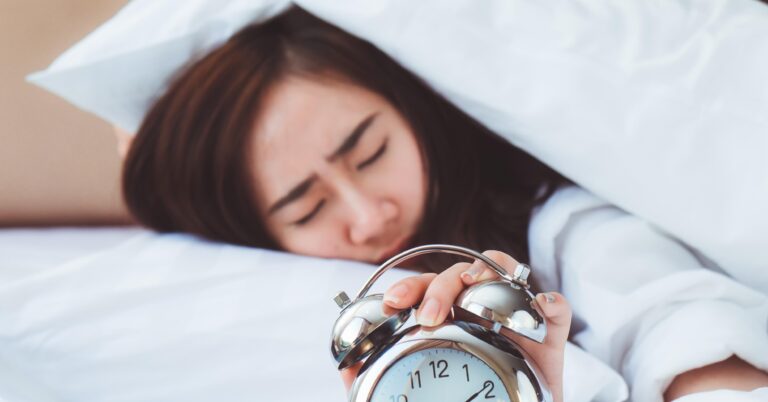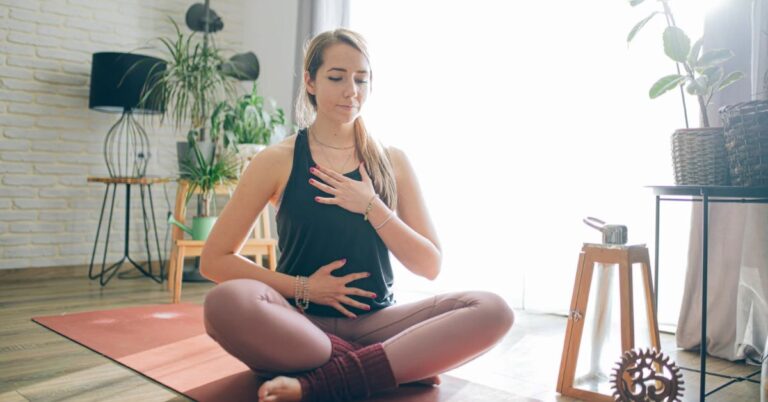How to Cure Snoring at Home & DIY Sleep Apnea Checklist
Loud snoring, waking up feeling tired, and the sensation of choking in your sleep—these are not just annoying; they could be early signs of sleep apnea. Sleep apnea is a condition where your airway collapses or gets blocked during sleep, causing breathing to stop repeatedly. If left unmanaged, it can lead to fatigue, mood swings, high blood pressure, and even heart disease. Fortunately, you can take action right now, starting tonight.
DIY Sleep Apnea Risk Checklist
Do you frequently snore loudly at night, causing you to wake up gasping or choking for air? Do you feel groggy during the day despite adequate sleep, or do you wake up with morning headaches? If you experience frequent awakenings with a dry mouth, sore throat, high blood pressure, or need to urinate multiple times during the night, these could all be indicators of sleep apnea.
Certain risk factors can increase the likelihood of developing sleep apnea, such as having a neck circumference exceeding 17 inches for men or 16 inches for women, being overweight or having experienced recent weight gain, sleeping on your back, having a family history of sleep apnea, or experiencing nasal congestion or a deviated septum. If you answered “yes” to three or more of these questions or risk factors, it may be time to take your sleep seriously, even if you haven’t received a formal diagnosis yet.
7-Step At-Home Snoring & Sleep Apnea Routine (No CPAP)
This routine may help reduce symptoms for mild to moderate cases of apnea, or for people waiting for a diagnosis, although it’s not a cure for severe apnea.
1. Change Your Sleep Position
Here’s a tip to help you sleep better: avoid back sleeping. Back sleeping can cause your airways to collapse. Instead, try sleeping on your side with a pillow between your knees. If you need extra support, you can use a body pillow. And here’s a fun trick: tape a tennis ball to the back of your shirt so you can’t move your back and stay on your side.
2. Elevate Your Head Slightly
Raising your head can help clear your airways. You can use a wedge pillow or elevate the head of your bed by 4–6 inches.
3. Try the Tongue & Throat Exercises (5 Minutes)
Also known as “myofunctional therapy,” these exercises help strengthen the muscles that control your breathing.
- Tongue Push-Ups: Press tongue to the roof of your mouth, hold for 5 sec, repeat x10
- Soft Palate Puffing: Say “ahh” while lifting the soft palate
- Jaw Resistance: Open mouth against resistance (hand or fist)
Do it every day—morning and night—and you’ll see results in 4–8 weeks!
4. Do Nasal Rinses Before Bed
Nasal congestion worsens breathing issues.
- Use a saline spray or neti pot 30–60 minutes before bed
- Apply nasal strips if nostrils collapse inward while sleeping
5. Use a Mouth Tape or Chin Strap (Optional)
If you breathe through your mouth, this can help encourage nasal breathing.
- Use micropore tape on the lips (if comfortable and safe)
- OR try a soft chin strap to support closed-mouth sleeping
If you have nasal blockages or panic with taped lips, please avoid this activity.
6. Cut Out Snoring Triggers (2–3 Hours Before Bed)
- Alcohol
- Sedatives or sleeping pills
- Big, heavy meals
- Smoking
Cutting these out will help you relax your throat muscles and make it easier to breathe.
7. Use an Anti-Snore Device (If Needed)
You can try:
- A mandibular advancement device (MAD) – holds jaw slightly forward
- Nasal dilators – expand nasal passage
- Positional therapy belts – prevent back-sleeping
Most are available online without a prescription—but talk to a doctor before long-term use.
Lifestyle Fixes That Reduce Sleep Apnea Over Time
Weight Loss
Even a 5–10% reduction in body weight can significantly improve apnea symptoms.
Breathwork & Vagus Nerve Stimulation
Try daily diaphragmatic breathing, humming, cold water splashes, or gargling to tone parasympathetic pathways and airway control.
Regular Exercise
Moderate aerobic exercise, 30 mins/day, improves oxygen regulation during sleep.
No Smoking
Smoking causes airway inflammation, worsens snoring and congestion.
When to See a Doctor or Get a Sleep Study
You might need a sleep specialist or a home sleep test if you:
- Stop breathing during sleep (your partner may notice)
- Wake gasping regularly
- Have dangerously high blood pressure or diabetes
- Still feel exhausted despite trying these remedies
Most clinics now offer home sleep study kits, no hospital stay is needed!
Sleep apnea and snoring can drain your energy, make you feel confused, and even affect your health in the long run. But you don’t have to suffer in silence. This checklist and daily routine can help you get back to restful sleep naturally. If your symptoms don’t improve, don’t hesitate to get tested and treated early. The sooner you take action, the better you’ll sleep and feel.






